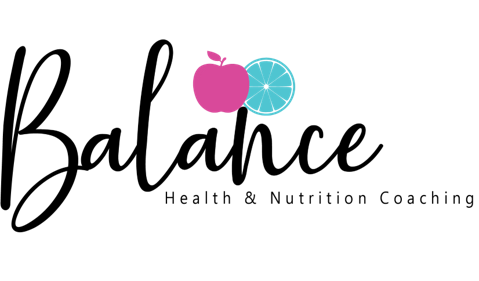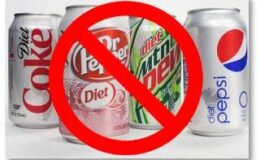It should come as no surprise that in order to be healthy, we need to eat CLEAN the majority of the time. Notice, I didn’t say ALL the time. Expecting perfection is unrealistic and can often lead to short term wins. But what does “clean” and “majority” mean? By “majority” I mean 80-90% of the time and by ‘clean’ I mean eating whole foods that aren’t processed. Sure, foods like sugar and bread aren’t always the best option, but every once in while isn’t so bad when these foods are in their true form. These foods become unhealthy when they’re processed with chemicals that turn a “not so bad“ food into something that is truly bad for us. Over time, these chemicals interfere with our hormones and our body’s chemistry leading us to gain weight, feel sick and get sick.
I was inspired to write this blog after one of my clients asked me to help her identify which ingredients on the nutrition label she should avoid.
Here are some of the bigger offenders:
- Sodium nitrates/nitrites-These food additives are used to preserve, flavor, and add color to processed meats like bacon, ham, and hot dogs. Under certain conditions (like high heat) they react with amino acids to form carcinogens. They can also negatively affect the function of the liver and pancreas, the organ responsible for insulin production.
- Partially hydrogenated oils (trans fat)- These are a manufactured fat which is formed by forcing hydrogen gas into vegetable fats under extremely high pressure(an unintended effect) This is how trans fats are created. They are used in food to enhance the taste and extend the shelf life. They are often found in margarine, pastries, frozen foods, cakes, cookies, crackers, soups, fast food items and nondairy creamers. Trans fats are dangerous because they increase the body’s LDL (“bad”) cholesterol while decreasing HDL (“good”) cholesterol. Trans fats have been found to contribute more to heart disease than saturated fats.
- Artificial colors (yellow #5 and #6, blue #1 and #2, red #40). These are often found in cereal, pudding, bread mix, beverages, chips, cookies, pickles, and condiments. Artificial food coloring has been linked to ADHD, chromosomal damage, and thyroid cancer.
- Monosodium Glutamate (MSG)- This chemical enhances the savory flavor of food. It’s often found in chips, soups, seasonings, frozen entrees, and foods with chicken or beef flavoring. It is been found to overexcite brain cells and cause brain-cell damage in mice. It has been associated with causing migraines, nausea, chest pains, and weakness. It also blocks the hormone leptin (which tells you, you’re full) from communicating with the brain and tells your body to pump out insulin, the fat-storage hormone. Not such great news for those of us looking to lose weight.
- Growth hormones (rBST and rBGH) These are given to conventionally raised dairy cow and cattle. They are found in non-organic dairy products and are linked to early puberty and obesity. Always choose organic dairy products to avoid this one. If organic dairy products are not available choose those that state “made without rBST or rBGH.”
- Butylated hydroxyanisole (BHA) and butylated hydroxytoluene (BHT)- These are used to preserve fats and oils. They can be found in beer, crackers, cereals, chewing gum, and potato chips, and foods with added fats. These compounds, in large doses can be quite taxing on the body. They have been found to disrupt our endocrine system (hormones) and produce cancer-causing compounds. In addition, the Department of Health and Human Services classifies the preservative as “reasonably anticipated to be a human carcinogen.”
- Artificial Sweeteners (aspartame, saccharine, sucralose). You might better know them as Splenda, Nutrasweet, or Equal. You will often find them in many products that are marketed as “healthy” including protein bars, energy drinks, or shakes. These artificial sweeteners are made with chemicals known to be neurotoxins and carcinogens, often affecting brain function. Some of these chemicals affect your weight by triggering the hormone that instructs your body to store fat (insulin), and decreasing levels of serotonin (which regulates your mood, sleep cycle, and digestion).
- High Fructose Corn Syrup (HFCS) This highly refined sweetener is found in many processed foods and is extremely calorie dense. It’s in ice cream, chips, cereal, bread, ketchup, canned fruits, yogurt, and two-thirds of all sweetened beverages. It is one of the largest contributors to the obesity epidemic and diabetes and is associated with raising LDL, the bad cholesterol. While you are avoiding HFCS, steering clear of corn syrup is also recommended as it certainly contributes to an expanded waistline.
- Sodium Benzoate- This preservative is often found in carbonated drinks and acidic foods like salad dressings, pickles, fruit juices and condiments. It has been associated with hyperactivity in children and ADHD. When combined with vitamin c, it is converted to benzene, a compound that is associated with the development of cancer. Carbonated beverages have been found to have the highest concentration of benzene, diet or sugar-free drinks are even more prone to benzene.
- Carageenan- This additive acts as a thickener, emulsifier, and preservative. Common sources of carrageenan include almond milk, cottage cheese, ice cream, coffee creamers and dairy-free products like vegan cheese. Research on this one is a bit limited, but of those studies that have been done, carrageenan has been found to increase levels of fasting blood sugar and glucose intolerance and is associated with having a negative effect on digestive health and with the formation of intestinal ulcers and growth.
Again, it’s unrealistic to think we can eat perfect all of the time. Having some guidelines of what to avoid can be very helpful. I hope that you’ll use this information to help you determine which foods are harmless and which can wreak havoc on your body over time.
Need more help trying to determine which foods your should or shouldn’t be eating? I would love to help. Head to my website to sign up for a free 30-minute consultation @https://balancehealthandnutrition.com/work-with-julie/.
In BALANCE,
Julie










